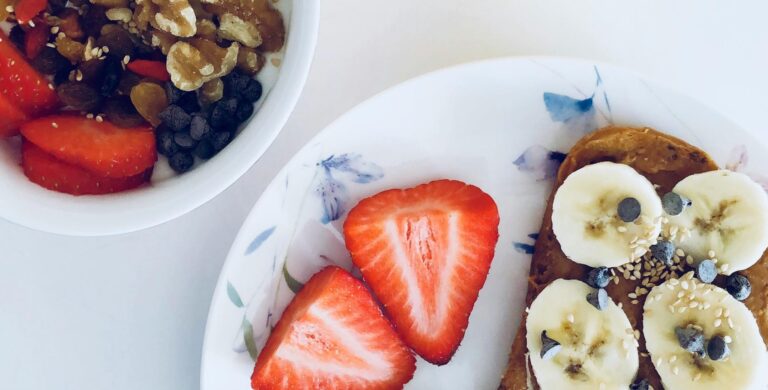How food affects the brain
Diets that are high in refined sugars can harm the brain, and cause inflammation and oxidative stress. This can worsen brain function and symptoms of depression.
Instead, foods that are high in omega-3 fatty acids, B vitamins, and antioxidants support brain health and should be consumed on a regular basis for better brain function.
Foods that contain these healthful components include:
- Green leafy vegetables e.g. broccoli and spinach
- Oily fish
- Berries, especially blueberries, strawberries and blackberries can delay memory decline
- Caffeinated tea and coffee can help to solidify new memories
Food types that boost mental health
A 2017 study on dietary patterns and depression, “a dietary pattern characterized by high intakes of fruit, vegetables, whole grain, fish, olive oil, low-fat dairy and antioxidants and low intakes of animal foods was apparently associated with a decreased risk of depression.” However, diets made up of red or processed meat, refined grains, sweets, high-fat dairy products, butter, potatoes, high-fat gravy, and inadequate fruits and vegetables is associated with an increased risk of depression and other mood disorders.
How nutrition impacts physical health
An unhealthy diet can result in many serious health issues including obesity, heart disease, and some forms of cancer.
The World Health Organization (WHO) states that eating a healthy diet, exercising, and avoiding tobacco use can prevent 80% of premature heart disease, 80% of type 2 diabetes cases, and 40% of cancers.
Obesity puts a person at risk of developing high cholesterol and high blood pressure, and is linked to some types of cancer. A healthy diet and exercise have been proven to reduce the risk of obesity and strengthen muscle mass and bones.
Additionally, exercise and eating a nutritious diet can also improve memory, give you more energy, and boost your immune system.
Where to start?
Eating healthy involves making mindful choices about the foods you consume to nourish your body and support overall wellbeing. Start by incorporating a variety of fruits, vegetables, whole grains, lean proteins, and healthy fats into your diet to ensure you’re getting a wide range of nutrients. Opt for whole, unprocessed foods whenever possible, and limit your intake of added sugars, refined carbs, and unhealthy fats. Paying attention to portion sizes and listening to your body’s hunger and fullness cues can help prevent overeating. Additionally, staying hydrated by drinking plenty of water throughout the day is essential for maintaining optimal health. Remember, healthy eating is not about strict dietary limitations but about feeling great, having more energy, and stabilising your mood.




